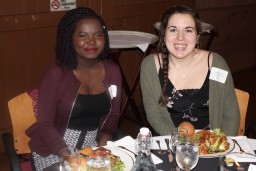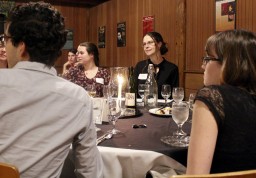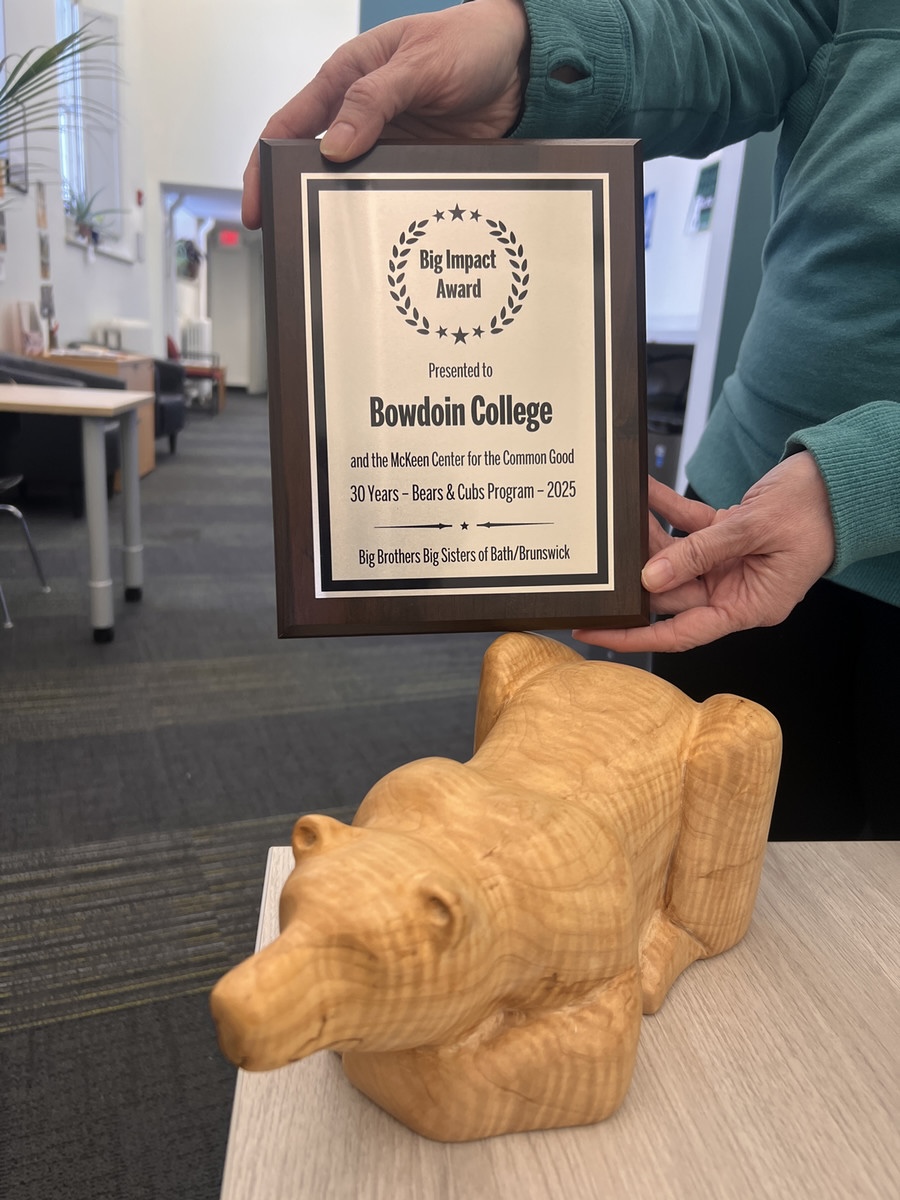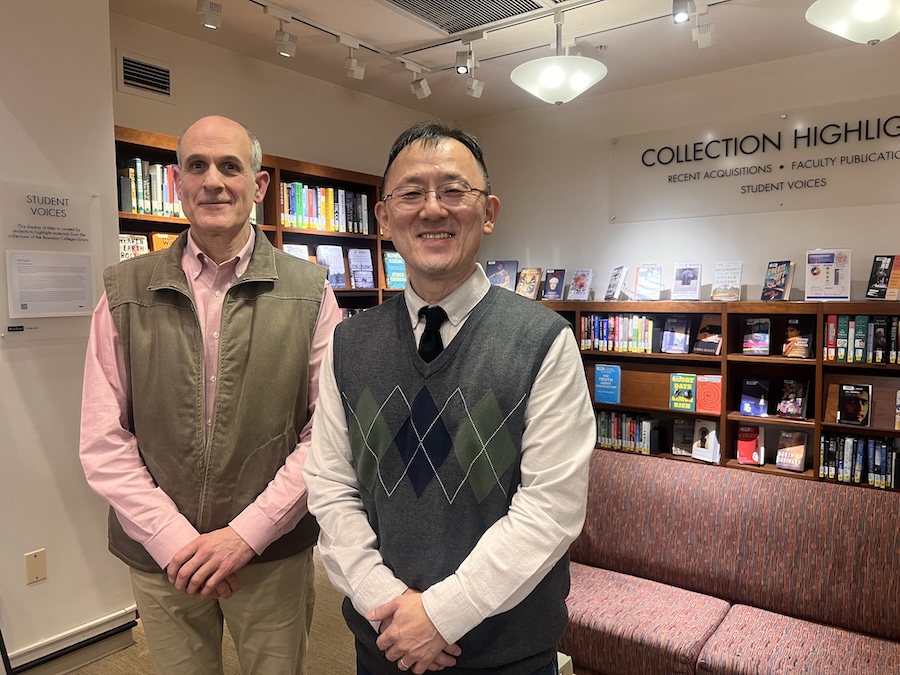Alternative Break Participants Connect and Reflect
By Talia Cowen '16Talia Cowen ’16, who reported on this event, led one of this winter’s Alternative Break trips, on human trafficking and poverty in Maine.
 This January during winter break, two groups of Bowdoin students spent a week in Maine on Alternative Winter Break trips. A part of the Alternative Break program brings back the trip participants several weeks after they return to the routine of Bowdoin life. Over dinner with several professors, staff and community partners, the students spend an evening reflecting on their trip experiences. The event, called Perspectives, took place this last Thursday in Cram Alumni House.
This January during winter break, two groups of Bowdoin students spent a week in Maine on Alternative Winter Break trips. A part of the Alternative Break program brings back the trip participants several weeks after they return to the routine of Bowdoin life. Over dinner with several professors, staff and community partners, the students spend an evening reflecting on their trip experiences. The event, called Perspectives, took place this last Thursday in Cram Alumni House.
The evening was hosted by the Alternative Break fellows, Kelsey Freeman ’16 and Abby Roy ’16, who have spent the past semester teaching leadership seminars for the trip leaders and providing support and guidance for the Alternative Winter and Spring break trips.
 This year, the two trips, profiled here, focused on immigrant and refugee education and human trafficking and poverty. Planned and led by Sewet Asfaha ’16 and Elina Zheng ’16, and Talia Cowen ’16 and Jesse Ortiz ’16, respectively, each trip provided a full week of service and learning for participants.
This year, the two trips, profiled here, focused on immigrant and refugee education and human trafficking and poverty. Planned and led by Sewet Asfaha ’16 and Elina Zheng ’16, and Talia Cowen ’16 and Jesse Ortiz ’16, respectively, each trip provided a full week of service and learning for participants.
At Perspectives, two students from Cowen and Ortiz’s trip were selected to present their thoughts on their trip. Harriet Fisher ’17 and Julia Berkman-Hill ’17 spoke on the experience of listening to the stories of survivors of human trafficking. For the other trip, Christabel Fosu-Asare ’18 and Lindsey Duff ’18 discussed the experience at Lyman Moore and Portland Adult Education. For Fosu-Asare, the trip raised the question, “Do immigrants have to change for Maine, or does Maine have to change for immigrants?”
In a reflection written at the end of her week on the Human Trafficking and Poverty trip, Maine native Julianna Burke ’16 explained, “This trip completely expanded my understanding of Maine as a state and a community. I called myself a Mainer long before Bowdoin. However, before this trip, I genuinely had no idea that human trafficking was a prevalent issue in Maine. Talking to survivors, going to shelters, and learning about the organizations that do street outreach and awareness enlightened me to the reality that trafficking happens in all communities, though we have an unfortunate aversion to discussing and exposing it.”
Immigrant and Refugee Education trip participant Tyrone Li ’16 noted that at “both Lyman Moore and Portland Adult Education it seemed as though there was a definite sense of dignity and respect given to each member of the classroom. I’ve found that it’s easy to mistake lack of English ability for lack of general abilities, but both institutions that we volunteered at emphasized this crucial difference in thinking that gives immigrants and newcomers the respect that they deserve.”
While most participants said that the trips had a profound impact on their perspective of Maine and the communities in which Bowdoin is embedded, returning back to college life after the break felt a bit abrupt and has left little time for substantial reflection. To facilitate discussion, each table was asked to discuss three questions that related to the experiences of both Alternative Break trips.
The tables were a mix of participants from both trips, allowing for participants to share experiences with each other. Bowdoin faculty and staff and community partners were also interspersed throughout the tables.



